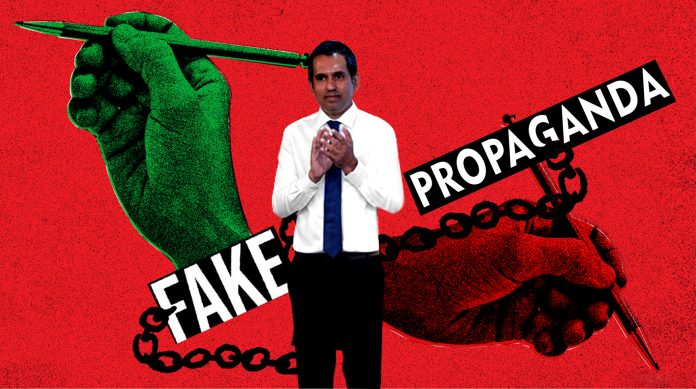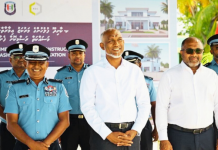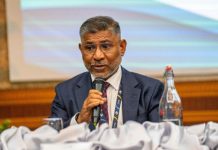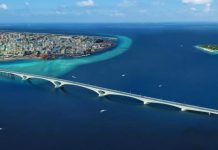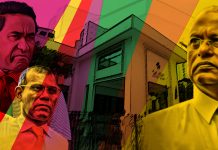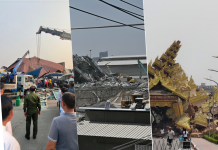In 2020, Mohamed Saeed, former Minister of Economic Development and presently member of People Majilis, Maldives was invited as a key speaker in one of CGSS’s online conducted international conference. Mr. Saeed joined CGSS (Center Center for Global & Strategic Studies) as a member of international board of advisors in August 2020. In this conference, he talked about how Maldives may face challenges with evolving Indian Ocean scenario.
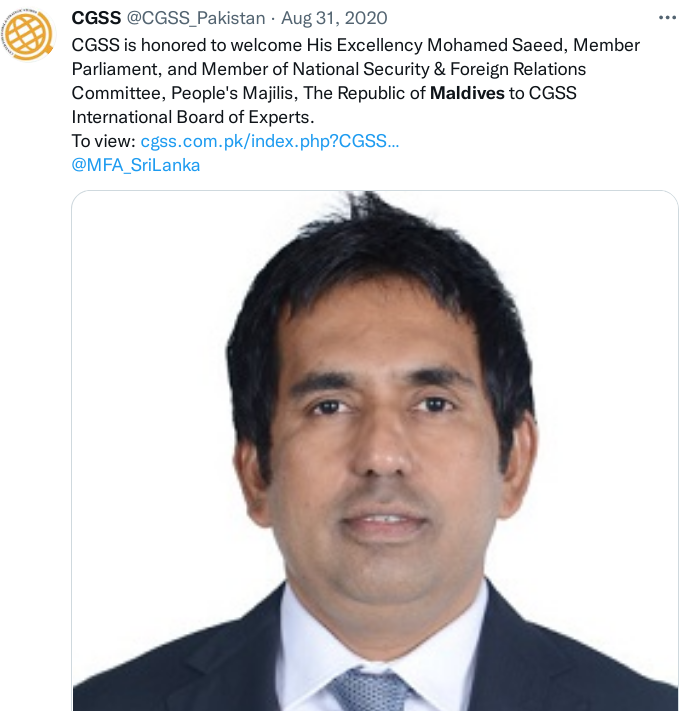 As he relayed his distress quoting a 2018 CNN based report that stated, ‘as china grows, India is looking to build military presence in Seychelles’. He worried if Maldives would be at greater loss by being too dependent on India. He also made claims about how the ruling party MDP has been performing poorly and the socio-economic progress that Maldives made under Yameen’s regime is crumbling apart.
As he relayed his distress quoting a 2018 CNN based report that stated, ‘as china grows, India is looking to build military presence in Seychelles’. He worried if Maldives would be at greater loss by being too dependent on India. He also made claims about how the ruling party MDP has been performing poorly and the socio-economic progress that Maldives made under Yameen’s regime is crumbling apart.
When asked about the growing influence of China in Maldives, he quickly made remarks saying Maldives did not invent free trade and that Maldives had approached the US, Japan and EU for FTAs too but only China was willing to invest and explore the Maldives. He subtly put a message across that China’s involvement in Maldives is inevitable as China is a ‘major economic power’ that is bound to make investments into neighboring countries in the continent, Maldives for more reasons because of its geo strategic importance far behind its physical size.
Two different online conferences were organized by CGSS in the month of Sep and Oct of 2020. The first conference criticized the current government of Maldives and questioned its close ties with India. The second conference held on Oct, discussed about BRI & Regional Connectivity. The aim of the conference was to get familiarized with the significance of the Belt and Road Initiative and how it contributes to the member states.

Debunking the claims: The entire world suffered when Covid-19 pandemic broke out. Ultimately, Maldives whose main source of economy is tourism was also left in rags. The World Bank and Asian Development Bank assessed Maldives as being one of the worst hit in the world from the pandemic. In 2018, the Maldives received around 1.4 million tourists and this number was little over 1.7 million in 2019. According to the statistics released by the Ministry of Tourism, tourist arrivals in 2019 saw a 14.7% increase over 2018. Despite several challenges, such as high trade deficit, difficulties in doing business and mounting debts, the Maldives’ economy has performed incredibly well. Solih’s government was expecting 2020 to be a better year for the country’s economy but with Covid-19, the GDP fell by -32% in 2020.
There has been reported disagreement regarding Free Trade Agreement with China that was signed through rushed parliament in 2018. The unsustainable debt towards China is worrisome for Maldives, though Beijing has indicated that it is ready to discuss repayment terms of the loans. However, after what happened in Sri Lanka, Pakistan and Djibouti, unsettling concerns about China’s ‘dept-trap diplomacy’ remains. Maldives could meet same fate as Sri Lanka where Chinese debt trap led the country to gain a 70 per cent stake in the Hambantota port on a 99-year lease in 2017. Former President Mohamed Nasheed estimates the bill was around USD 3.1bn.
Furthermore, Mr. Saeed also commented regarding relationship between Maldives and Pakistan, saying that the two countries share common ideologies, and the brotherly bond will grow deeper with years to come. Following this, a writer from CGSS published an article that contained peculiar facts about India and the ruling party in Maldives. The article had subtle hints where they subjected India as the ‘foreign country’ who funded MDP, President Solih’s government to assassinate the then President Abdulla Yameen. The article also questioned Solih’s administration and its lack of trust for the judicial system, but what the world knows is the opposite. It was reportedly Yameen who lacked trust in its judicial system and went on a rampage by jailing the Chief Justice, because the Supreme Court overturned the sentences of many of Yameen’s political opponents which was followed by a declaration of state of emergency in the country for 45 days in 2018.
Secondly, the article claimed increased crime rates under Solih’s jurisdiction. If reports about crime in Maldives is read in depth, its notable that murders and political arrests have gone down increasingly in numbers during his regime. And as far as accusing the government of not addressing the mysterious deaths and disappearances are concerned, facts seem to have gotten mixed along the way. It was in the year 2014, when Ahmed Rilwan, a blogger and reporter for the Maldives Independent was abducted and disappeared. He used to criticize corruption and religious extremism. Similar case occurred in the year 2017, when Yameen Rasheed who was known for his sarcastic takes on politicians was found dead with 34 stab wound in Male. All these events occurred under Yameen’s administration. This could also be seen as a threat to the working of media and the art of journalism in Maldives as Yameen passed the controversial defamation law in 2016, this limited the freedom of press making it almost non-existent but as soon as Solih’s tenure started, media situation in Maldives significantly improved as stated in the World Press Freedom Index report.
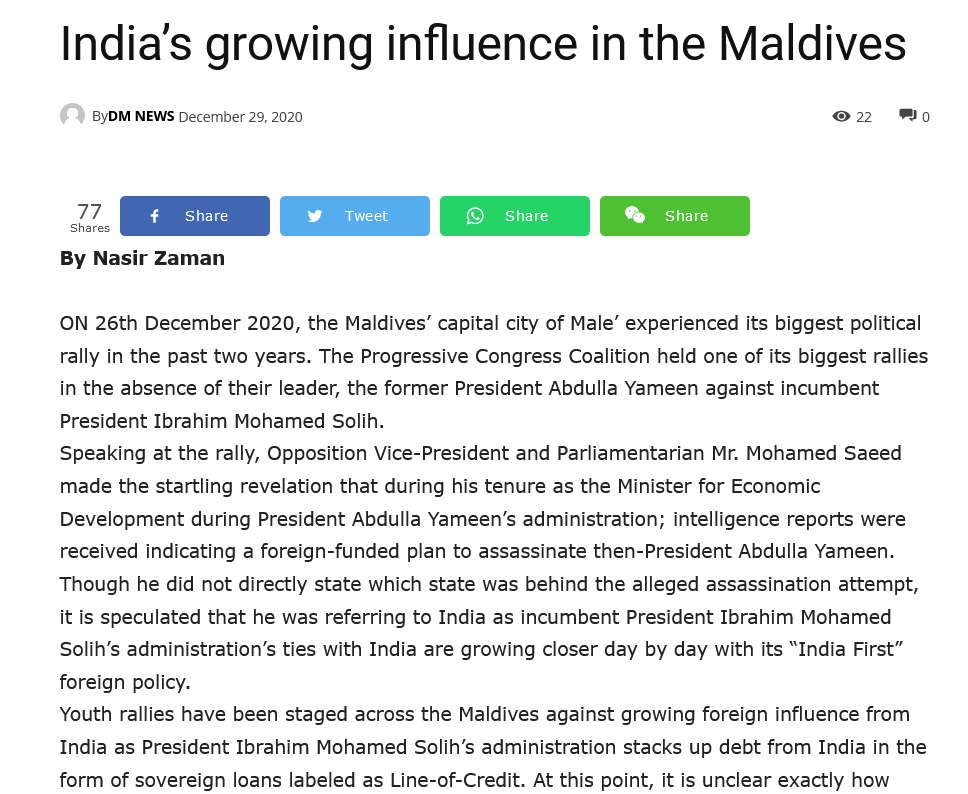
Archive link- Indias growing influence in the Maldives
Another baseless claim made in the article was the protest led by 30,000 Maldivian fisherman. The reason behind the protests were portrayed to be the aggravated local fishermen, who were forced to sell their fish under market price as the government’s alleged mismanagement of state owned fisheries companies. But no such event ever occurred or happened. This information being spread was fake and malice. Was this a planed propaganda by someone and if so what was the motive behind?
This article was later deleted and made archived.
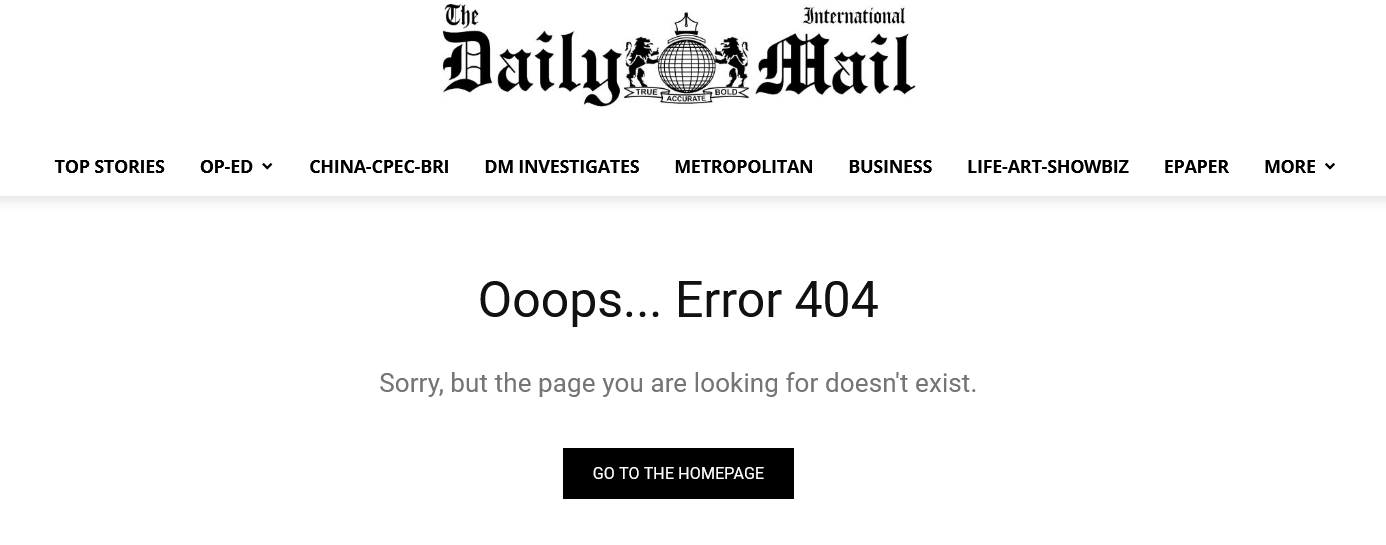
CGSS, Center for Global & Strategic Studies, Pakistan calls itself as an institution that helps improve policy and decision making through analysis and research. They are also the lead Think Tank working on Belt & Road Initiative (BRI), Eurasian connectivity and Regional cooperation platform. Lieutenant General Zahir Ul Islam, (Retd), is the Chairman of CGSS. He also served as the former Director General of the Inter-Services Intelligence (ISI). Major General Hafiz Masroor Ahmed, (Retd), Senior Vice President, is the founding member and head of CGSS. He also supervises all the academic/research work of CGSS and has an experience of 34 years in Pakistan Army.
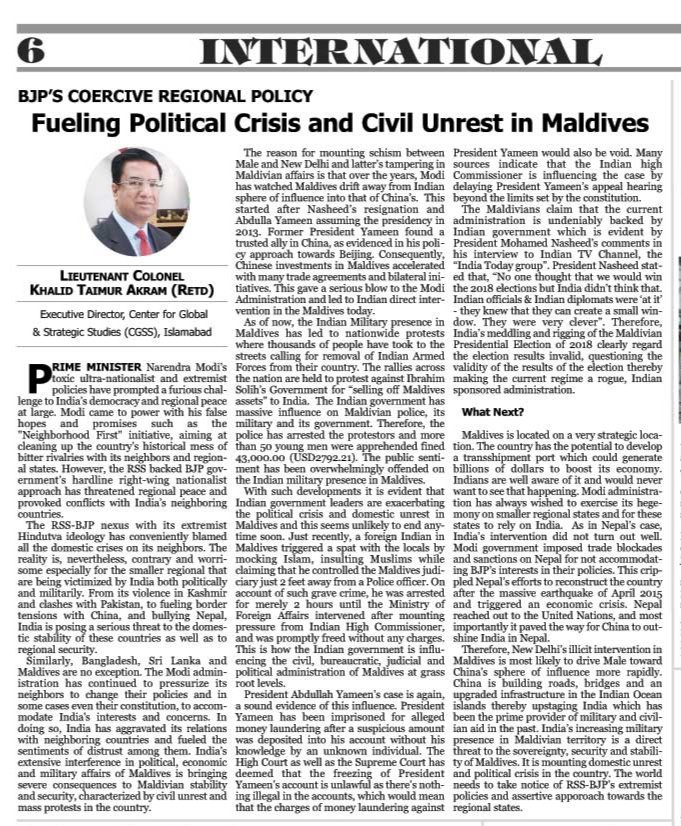
Its international Board of Advisors include Admiral (Dr.) Jayanath Colombage who is Foreign Secretary, Ministry of Foreign Affairs, Democratic Socialist Republic of Sri Lanka, who retired after an active service of 37 years as a four-star Admiral. Dr. Leonid Savin who is from Russia is a Geopolitical analyst, Chief editor of Geopolitica.ru, founder and chief editor of Journal of Eurasian Affairs is also a member. Professor Xu Wenhong who is the Deputy General Secretary of the Belt and Road Center, Chinese Academy of Social Sciences. For an institution that calls itself as the leading think tank who does thorough research, for them to allow such an article with twisted and blurred facts with no backbone to support its claims, get published by one of their employees is really a question to their credibility.
Seeing the Vice President of PNC, People’s National Congress, Mohamed Saeed, openly making exaggerated claims against the ruling administration in an online conference and spreading this propaganda, encouraging hate sentiments for President Solih’s government in itself is a bigger plan to bring Pro-China derived Yameen to the power. This shift in the future political scenario that is being pushed by Yameen’s party, PNC can be very beneficial for China and its Belt and Road Initiative project as well.

